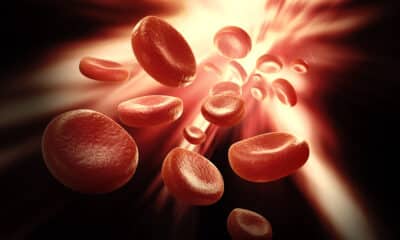Don’t Ignore These Often Overlooked Signs After a Car Accident
Car accidents can disrupt lives in profound ways, leaving behind a trail of both visible and invisible injuries. While you may find it easy to spot bruises or broken bones, other types of damage might not reveal themselves until days or even weeks after the incident. It’s vital to recognize that every injury, whether it seems minor at first or not, deserves your attention. Each collision is unique, but many common injuries tend to fall within a handful of categories that can significantly impact your health and well-being. Understanding these can aid in both immediate care and long-term recovery.
Physical Trauma That Shows Up Right Away
In the chaos of an accident, your body is subject to forces that can lead to immediate and sometimes severe injuries.
Head and Brain Injuries
A jarring impact can lead to brain injuries, even if you don’t lose consciousness. Symptoms from concussions can manifest as confusion, memory lapses, or mood changes, potentially lasting weeks or longer. If you’ve bumped your head during the incident, stay alert for any unusual feelings or persistent headaches, as these could indicate more serious trauma.
Neck and Back Problems
You might experience whiplash when your neck jerks forward and backward suddenly. Pain can manifest right away, or it may become noticeable after some time. In severe cases, your spine’s discs can become displaced, pinching nerves and causing painful symptoms. If you feel discomfort in your neck or back after an accident, seek medical evaluation without delay.
Chest and Rib Injuries
While seatbelts are instrumental in saving lives, the force they exert during an accident can lead to bruised ribs or even fractures. Drivers are especially at risk due to their proximity to steering wheels. It’s not uncommon for those injuries to go unnoticed until you experience pain while breathing or moving.
Unexpected Signals You Shouldn’t Ignore After A Crash
In the aftermath of a collision, it’s easy to overlook subtle signs that might point to underlying injuries. Persistent headaches, persistent chest tightness, or unexplained fatigue can suggest issues that remain undiagnosed. These symptoms can often veer from typical soreness to indicators of more serious conditions that require a doctor’s attention.
When managing pain, some turn to over-the-counter medications, while others explore alternatives like topical creams or natural supplements. Everyone has different approaches, often shaped by personal experiences and preferences. Remember, what works for one person might not resonate with another; your healing journey is uniquely yours.
Damage To Arms, Legs, And Joints
The violent nature of car crashes can result in significant injuries to limbs and joints, and sometimes without any visible breaks.
Knee Strikes and Leg Pain
If you’re seated in the front, your legs can collide with the dashboard during an accident. This impact can lead to knee cartilage damage or even a crack in the kneecap, with pain potentially emerging hours or days later. Don’t underestimate delayed symptoms, as they may complicate your mobility.
Shoulder and Upper Arm Trouble
The impact forcefully targeting one shoulder typically leads to muscle or ligament strains on that side. A shoulder that feels increasingly sore or stiff following an accident should be evaluated, especially if it worsens over time. Don’t shrug off painful sensations—it’s better to get them checked out.
Side Impacts and Bruises
In side-impact accidents, your arms and legs can strike the car’s interior, causing everything from bruises to fractures. While some injuries may heal over time, others can limit your movement or lead to chronic discomfort.
Common But Overlooked: Soft Tissue Injury
“Soft tissue” refers to muscles, ligaments, and tendons—essentially all the connective elements that allow you to move smoothly. During an accident, these tissues can experience sudden stress, leading to sprains, strains, or micro-tears, especially in the neck, shoulders, and lower back. These injuries often evade detection on standard imaging tests, but their impact can still result in nagging and lasting pain if not treated promptly.
Pain That Appears Later
Not all injuries make themselves known immediately after an accident. Sometimes, discomfort creeps in slowly, catching you off guard days later.
Signs of Brain Injuries
Symptoms of brain injuries may appear subtle at first; trouble with vision, memory problems, or an unexpected wave of confusion could signal an underlying issue—even if you didn’t lose consciousness during the accident. If these symptoms arise, consult a medical professional immediately.
Signals From Your Mental Health
Recovering from a car accident isn’t purely about physical healing. Many survivors grapple with anxiety, depression, or sleep disturbances. These emotional responses may stem from the trauma of the accident itself or from brain injuries. In Florida, you have the right to seek compensation for both the physical and emotional toll of an accident, but it’s crucial to have the necessary medical documentation.
What You Can Do
Seeing a healthcare provider soon after your accident is one of the smartest moves you can make, even if you feel fine. Often, seemingly minor injuries can escalate if left unchecked.
Be upfront with your healthcare provider about every symptom—no matter how insignificant it may seem. This transparency helps them recommend the right tests or refer you to specialists for more in-depth care.
Using a seatbelt is still one of the best ways to safeguard yourself in a crash. While good driving practices can reduce the risk of accidents, they can’t eliminate them entirely. If the unfortunate happens and you sustain injuries, don’t delay seeking help.
Listen to your body and trust your instincts. If something feels off or abnormal, don’t brush it aside. Early intervention can lead to smoother healing and may mitigate the risk of longer-term pain stemming from your accident-related injuries.
















